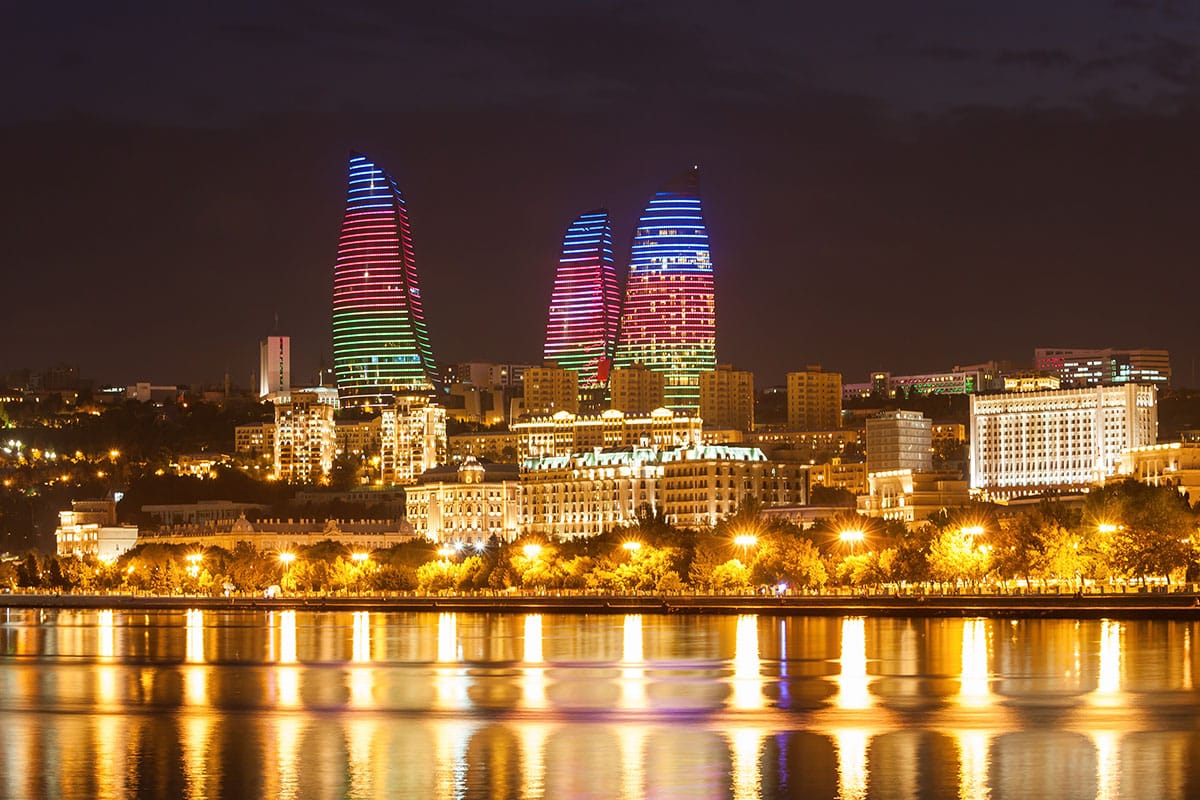
In mid-July 2024, the Azeri Embassy in Tehran was reopened after a year of negotiations to relieve the tensions between the two countries.
Relations soured between Iran and Azerbaijan after an armed assailant stormed the Azeri Embassy in Tehran in January 2023, killing the security officer and injuring two other guards. Despite Iran’s adamant denials, Azeri President Ilham Aliyev, called this a “terrorist attack”. Relations between the two countries deteriorated still further After Azerbaijan decided to open an embassy in Israel in March 2023. This infuriated the Iranians, since while their relations with their northern neighbor hit a new low, Baku’s relations with Jerusalem kept warming up.
It is no surprise the opening of an official Azeri presence in Israel caused the Tehran-Baku relations to sour. This being said, following the October 7 massacre by Hamas and Islamic Jihad, two Iranian proxies, and the war in Gaza that ensued – the tensions between Iran and Azerbaijan assumed yet another dimension.
In November 2023, the Iranian Supreme Leader Ali Khamenei, called on all Muslim countries to sever all their diplomatic and economic ties with Israel, given the war in Gaza. Khamenei even stressed that “oil and food export routes to Israel ought to be blocked”. Khamenei attempted to lead an anti-Israeli Islamic resistance front, however it seemed like this initiative failed to produce actual results on the ground.
This was due to the fact that two countries, members of the Organization of Islamic Cooperation (OIC), were supplying oil to Israel: Azerbaijan and Kazakhstan. Of these two oil-rich countries, Azerbaijan is the more important for Israel. Azerbaijan provides Israel with some 40% of its oil consumption. In return it is a recipient of advanced Israeli weaponry worth billions of dollars.
The Israeli armaments have enabled Azerbaijan to achieve a military advantage over its adversary, Armenia. On the other hand, Israel is given a foothold in a strategically important region. It uses the area for intelligence operations against Iran, Azerbaijan’s neighbor.
From the Iranian perspective, the close ties between Baku and Jerusalem mean an increased Israeli presence in the region – a presence that includes weapons and economic and security ties. However, the Azerbaijan-Israel relationship is just one factor impeding Tehran’s relations with Baku, a Shiite-majority country. Ever since Azerbaijan became independent with the disintegration of the Soviet Union in 1991, Iran has regarded it as a backyard of sorts for expanding its Shiite religious and political influence in its quest for regional hegemony.
Iran has always worked to recruit Shiite communities into its “Axis of Resistance”. This began with its strategy of warfare by proxy, which focused on Lebanon, Iraq and Yemen. Additionally, Iran sought to penetrate the Shiite community in Azerbaijan. In 2013, Iran established the Husayniyun – the Islamic Resistance Movement of Azerbaijan – in an effort to form a powerful proxy organization in the Caucasus. The first recruits to the Husayniyun were six Azeri citizens who left for Syria to defend Shiite shrines against Sunni opponents during the civil war against the Bashar al-Assad regime in Syria. Qasem Soleimani, the then-commander of the Quds Force, the Iranian Revolutionary Guards Corps (IRGC) elite unit, personally declared the establishment of the new proxy unit in 2017.
After Azerbaijan emerged victorious against Armenia in the 2020 war, and having regained control of the Nagorno Karabakh region, Azeris in Iran began identifying more strongly with Azerbaijan. At the same time, shortly after the war, Iranian proxy groups, including the Husayniyun, flooded the social media with videos in Azeri, promoting their radical religious ideology. They called for the local Shiites to rise up against the government and attack government buildings in Azerbaijan.
Later on, Iran stoked the unrest against the Azeri government. In response, Baku embarked on a mass oppression drive against pro-Iranian networks in the country. In November 2022, five persons were arrested and charged with spying for Iran. The detainees were accused of having provided the Iranian security agencies information harmful to Azerbaijan’s security.
In July 2023, an Afghani national Pavzan Musa Khan, was detained in Baku by Azerbaijan’s State Security Service (DTX). He was suspected of conspiring to conduct a terrorist attack on the Israeli embassy in Baku. Khan was convicted and sentenced to ten years in prison.
Khan mentioned “other brothers” that have attempted to commit such terror acts. This very fact traces back to Tehran and implies on Iranian involvement, as all previous attempts to attack Israeli targets in Baju were plotted by Tehran.
From Azerbaijan’s standpoint, activities by pro-Iranian forces in the south Caucasus region might potentially exacerbate regional tensions. For this reason, Iran has tried to use the Azerbaijan Husayniyun to deter Azerbaijan and lower the level of relations with Israel.
As Iran shifted its focus toward using its proxies against Israel in the Swords of Iron War, it appears that it has for the time being abandoned its strategy of influencing the Shiite communities in Azerbaijan and that it is now more intent on strengthening its ties with that country. As part of Iran’s fight against Israel through its proxies, it is attempting to isolate it regionally and internationally, meaning that improving its relations with Azerbaijan is now a high priority. Therefore, despite the tensions between the two countries, Iran and Azerbaijan have begun developing their economic ties, and in particular the trade and transport corridor that is also of interest to the northern neighbor, Russia.
Iran’s relations with Azerbaijan are tense and volatile. It is attempting to exert pressure on Baku following the war in Gaza and the widespread international condemnation of Israel. This being said, it appears that the Iranians do not have sufficient leverage to persuade Azerbaijan to sever its relations with Israel, thereby leaving it alone in the face of the threat from Tehran. In contrast to the other Shiite regional players, Iran is being unsuccessful in expanding its influence in a large Shiite country like Azerbaijan, as opposed to the successes it has had among Shiite communities throughout the Middle East, harnessing them under its control through local front-line franchises, as is the case in Lebanon, Yemen and Iraq.
The article was originally published on ynetnews
The views expressed in this article are those of the author and do not necessarily represent the views of the movement



